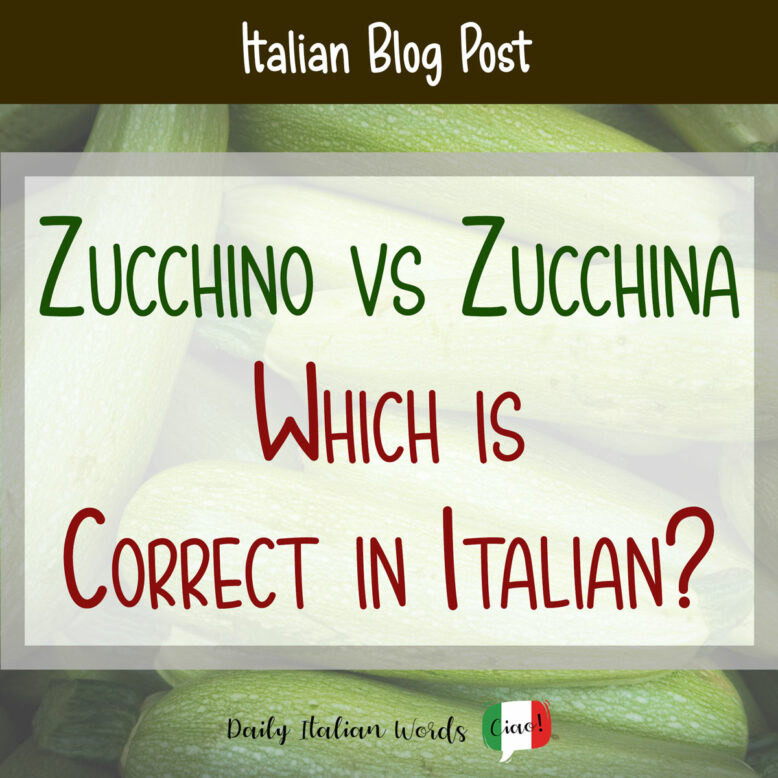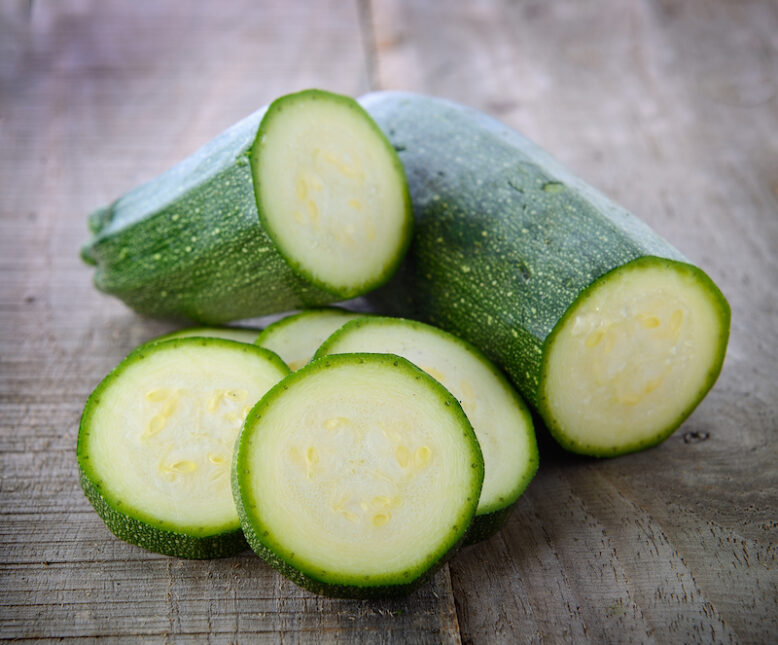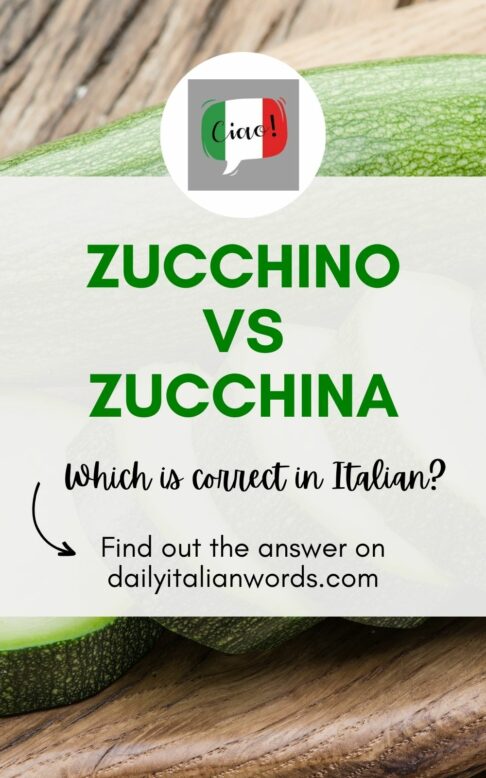A few years back, I remember being in the kitchen with my Italian mother-in-law, helping her prepare a shopping list for the week. The Monday meal was going to consist of her famous zucchini fritters, so I diligently started writing out the word: zucchini…
“Zucchini? Don’t you mean zucchine?” she asked, peering bemused over my shoulder. And thus ensued the age-long debate that continues to divide Italians across the country!

Zucchino vs Zucchina – The facts
Before we begin, let’s set a few things straight. Both the masculine zucchino and the feminine zucchina exist and are used in modern day Italian, as are their respective plurals zucchini and zucchine. They are diminutive forms, as can be observed from the -ino/a ending, derived from the word zucca meaning pumpkin or squash.
According to the dictionary of the Italian language Devoto-Oli, the term zucchino officially entered the Italian language in 1875, while zucchina followed a few years later in 1879. The only minor difference in meaning is that zucchina can refer to both the fruit and the plant that produces it, whereas zucchino only denotes the fruit.
Despite zucchino being slightly older, there is little consensus about which is the more “correct” term. The Accademia della Crusca, a Florence-based society of scholars of Italian linguistics and philology, would appear to prefer the masculine version whereas the equally respectable Treccani, an Italian language encyclopedia, lists zucchina as the primary translation and zucchino as a Tuscan variant.
Did you know that…?
In English, we’ve imported many words of Italian origin in their plural form to refer to singular items. In addition to zucchini, we also have broccoli, panini and scampi to name a few.

So which is correct?
At the end of the day, there isn’t a right or wrong answer. Italians tend to choose their preferred term according to their own regionalisms and dialects. This explains why zucchino is more commonly used in Tuscany, Piedmont, Emilia-Romagna and Sardinia, while zucchina is heard more in other regions, both in the north and south.
In talking with my Italian friends, who come from various regions across Italy, it does appear that zucchina has taken a stronghold, although some tend to prefer zucchino as the singular form and zucchine for the plural!
As for my mother-in-law, she definitely has both feet firmly planted in the zucchina camp!
Which term do you use? Let us know in the comments below!

Heather Broster is a graduate with honours in linguistics from the University of Western Ontario. She is an aspiring polyglot, proficient in English and Italian, as well as Japanese, Welsh, and French to varying degrees of fluency. Originally from Toronto, Heather has resided in various countries, notably Italy for a period of six years. Her primary focus lies in the fields of language acquisition, education, and bilingual instruction.


